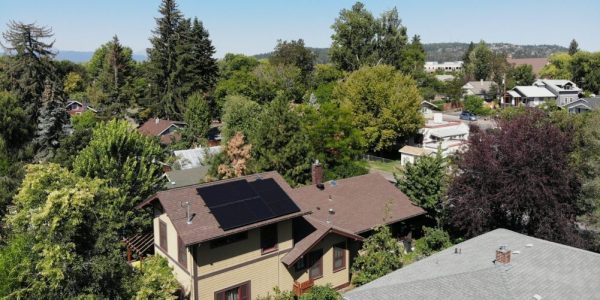Individual action is crucial… but is it enough?

A simple but powerful mission guides our work here at The Environmental Center: to embed sustainability into daily life in Central Oregon.
As Peter Geiser, one of our founders, says, “It starts with personal change, then change in the place we live, then change in the world.”
As we celebrate our 30th anniversary, I’ve been reflecting on how our approach to achieving our mission is rapidly evolving. For many years, we focused almost exclusively on helping individuals and businesses take action. Recycle and compost more. Use less energy. Go solar. Bike to work.
Today, our focus is shifting towards changing systems. We recognize that individual action, at home, work and school remains essential. But individual efforts alone won’t create the change we need to ensure a healthy climate for future generations. We also need to address systemic barriers: the spoken and unspoken rules that shape our decisions and the future of our region.
Take local transportation as an example. Sure, all of us could walk and bike more. But those options don’t feel safe for many people in Bend, and our transit system still provides very limited service. The truth is that our transportation system works well for those who can afford to and are able to drive a car, but not so well for everyone else. Why? Because transportation planning and investments have focused primarily on moving cars rather than moving people.
Another example is the housing market. Inefficient homes with high utility bills waste energy and contribute to high living costs, especially for families on limited incomes. Our housing system still focuses almost exclusively on the cost to build or purchase a home or rent an apartment, rather than the full cost of living in that home or apartment. And decision-makers resist even baby steps in a new direction, such as requiring an energy score (a miles-per-gallon score for home energy use) so that renters and home buyers can know their full living costs.
As we move into our next thirty years of education and advocacy, we’ll still focus on individual action as the first step towards a better future. But we’ll also push for change at the system level. Both are needed to ensure a healthy future for people and the planet.
We hope you’ll join us in bridging the gap between personal change and change in the world. Together, we can take local action to make a world of difference.
–Mike Riley, Executive Director